Text
The Impact of Early Mental Health Education: Shaping Healthier Futures

Early mental health education is crucial in shaping emotionally resilient, well-rounded individuals. Introducing mental health awareness from a young age can help break down the stigma surrounding mental health issues, promoting a healthier, more open society for future generations. But why is this early intervention so important, and what impact does it have?
Building Emotional Intelligence
Teaching children about mental health from an early age helps them understand and express their emotions in healthy ways. They learn to recognize and communicate their feelings, whether it’s anger, sadness, or anxiety. This emotional intelligence is key in building strong relationships, making informed decisions, and handling challenges with resilience. As adults, they’ll be better equipped to manage stress, overcome adversities, and maintain their overall well-being.
Early Detection and Prevention
Mental health issues such as anxiety, depression, and behavioral disorders can manifest in children and adolescents. Without early education, these conditions often go unnoticed or misunderstood, leading to long-term consequences. By teaching children about mental health, we can detect early signs of distress and intervene before issues escalate. Early intervention leads to better outcomes, enabling children to thrive emotionally, socially, and academically.
Reducing Stigma and Fostering Empathy
Mental health education helps dismantle the stigma associated with mental illness. When children understand that mental health issues are as real and valid as physical illnesses, they are more likely to approach these topics with empathy and openness. This creates a more supportive environment where individuals feel safe to seek help without judgment. In the long run, this reduces the societal stigma surrounding mental health, paving the way for a more compassionate world.
Creating a Culture of Support
Schools, families, and communities that prioritize mental health education foster a culture of support. Children and teenagers are encouraged to express their feelings and seek help when needed. This open environment can prevent feelings of isolation and reduce the risk of mental health crises in the future. When young people grow up knowing that it’s okay to ask for help, they are more likely to maintain strong mental health throughout their lives.
Incorporating Mental Health in Schools
Many schools are now integrating mental health programs into their curricula, focusing on mindfulness, emotional regulation, and social skills. Teachers and staff are trained to recognize signs of mental health challenges and respond appropriately. This holistic approach ensures that children not only learn academic subjects but also gain the skills necessary for emotional well-being.
The Role of Parents and Caregivers
Parents play a vital role in reinforcing mental health education at home. Open communication, active listening, and emotional support can go a long way in helping children feel understood and valued. Encouraging children to talk about their feelings, praising their efforts in managing emotions, and modeling healthy behavior can significantly contribute to their mental health.
Early mental health education is a powerful tool in shaping healthier, more resilient individuals and societies. By equipping young people with the knowledge and skills they need to navigate their emotions, we can prevent future mental health crises and create a world where mental health is prioritized, understood, and respected.
#MentalHealthEducation#StartYoung#EmotionalIntelligence#BreakTheStigma#MentalHealthMatters#SupportOurYouth#EarlyIntervention#EmpathyAndUnderstanding#SchoolMentalHealth#HealthyMinds#ParentingForMentalHealth#MentalWellnessForAll#YouthEmpowerment#MentalHealthAwareness
1 note
·
View note
Text
Sharing is Helpful
Sharing your thoughts, feelings, and experiences, especially after enduring trauma or hardship, can be incredibly therapeutic. Here’s why sharing is beneficial:
Releases Emotional Burden: Keeping painful experiences bottled up can lead to emotional distress. Sharing your story helps release some of this burden, making you feel lighter and more at peace.
Promotes Understanding and Validation: Talking about your experiences allows others to understand what you’ve gone through, and their empathy can validate your feelings. Knowing that others care and understand can be a powerful form of emotional support.
Encourages Healing and Growth: Sharing is an essential step in the healing process. It allows you to confront your trauma, understand it better, and find ways to cope and move forward. Each time you share, you reclaim a part of your power.
Builds Connections: Opening up about your experiences can help you connect with others who have faced similar challenges. This connection fosters a sense of belonging and can be incredibly comforting.
Raises Awareness: Sharing your story can educate others about your experience, helping to break down stigma and promote awareness about issues like mental health, abuse, or trauma.

Why Group Therapy is Helpful
Group therapy brings people together in a supportive environment to share their experiences and learn from one another. Here’s why it’s effective:
Shared Experiences: In group therapy, you realize that you are not alone. Hearing others share similar experiences can be comforting and provide a sense of camaraderie.
Diverse Perspectives: Listening to others in the group can offer new insights and coping strategies. Learning how different people manage their challenges can inspire you to try new approaches.
Supportive Environment: Group therapy provides a safe space where you can express your feelings without fear of judgment. The group setting fosters mutual support, encouragement, and validation.
Building Social Skills: Group therapy can help improve communication and social skills. It’s a great place to practice interacting with others in a positive, supportive environment.
Accountability and Motivation: Being part of a group can motivate you to stay on track with your goals. The shared commitment to healing creates accountability, encouraging everyone to make progress.
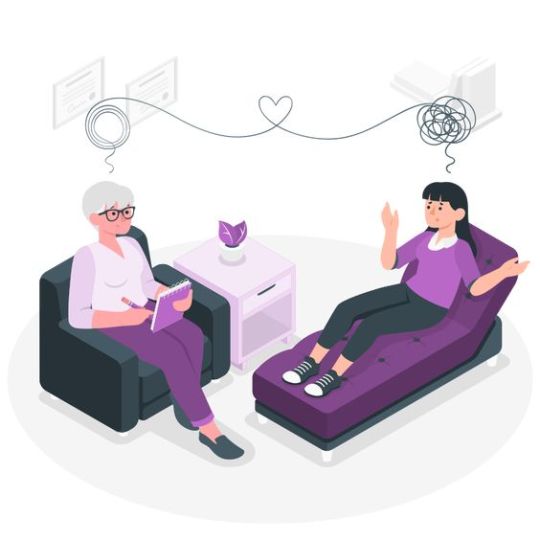
The Need for Therapy for Different Age Groups
Therapy is essential for people of all ages, but the reasons and focus areas can differ depending on the age group.
Children: Therapy for children can help them process emotions, understand their experiences, and develop coping skills. It’s particularly important for children who have experienced trauma, bullying, or family issues. Play therapy and art therapy are often used to help children express themselves in a non-verbal way.
Adolescents: Teens face unique challenges, such as peer pressure, identity struggles, and academic stress. Therapy can provide a safe space for adolescents to explore their feelings, build self-esteem, and develop healthy coping mechanisms. It also addresses issues like anxiety, depression, and eating disorders, which often emerge during these formative years.
Adults: For adults, therapy can help manage stress, relationship issues, career challenges, and mental health disorders like depression and anxiety. It also offers support for dealing with life transitions, trauma, and grief. Cognitive Behavioral Therapy (CBT) and other evidence-based approaches are commonly used to help adults navigate their mental health.
Older Adults: Therapy for older adults often focuses on coping with loss, loneliness, health issues, and adjusting to retirement. It helps them deal with the emotional and psychological aspects of aging. Group therapy can also provide a sense of community and prevent feelings of isolation.
Whether through individual or group therapy, reaching out for help can be a transformative experience. Therapy provides the tools needed to navigate life's challenges, offering hope, healing, and a path forward for people of all ages.
#MentalHealthMatters#TherapyIsForEveryone#HealingThroughSharing#GroupTherapyBenefits#ChildrensMentalHealth#TeenTherapy#AdultMentalHealth#SupportForSeniors#BreakTheStigma#CommunitySupport#SpeakYourTruth#EndTheSilence#HealingJourney#MentalHealthAwareness
1 note
·
View note
Text
Come Forward If You’re a Victim
Coming forward as a victim of abuse, violence, or harassment can be incredibly difficult, but it’s a vital step toward healing and justice.
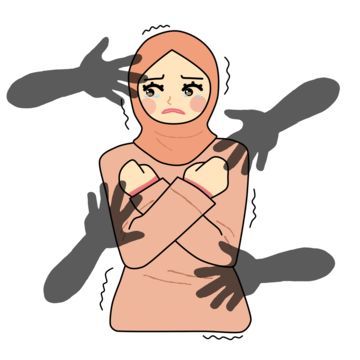
Here’s how you can begin the process:
Acknowledge What Happened:
The first step is recognizing and accepting that what you experienced was wrong. Understand that you are not to blame, and your feelings are valid.
Confide in Someone You Trust:
Reach out to a trusted friend, family member, or counselor. Speaking to someone you trust can provide emotional support and help you process your feelings.
Document Everything:
Keep a record of incidents, including dates, times, places, and any communications related to the abuse or harassment. Documentation can be crucial if you decide to pursue legal action.
Seek Professional Help:
Contact a mental health professional to help you navigate your emotions and the trauma. Therapy can be an essential part of your healing process.
Contact Authorities or Support Organizations:
Report the incident to the police or a relevant authority if you feel safe doing so. You can also reach out to support organizations or hotlines that specialize in helping victims of abuse.
Understand Your Rights:
Educate yourself about your legal rights and the options available to you. Many organizations offer free legal advice for victims of violence and harassment.
Consider Joining a Support Group:
Support groups provide a safe space where you can share your experiences with others who have gone through similar situations. This can be incredibly empowering and reassuring.
Protect Yourself:
If you’re in immediate danger, prioritize your safety. This might mean finding a safe place to stay, obtaining a restraining order, or seeking police protection.
Take Your Time:
Coming forward is a personal decision that should be made at your own pace. Don’t rush the process; do what feels right for you.
Stay Strong and Empowered:
Remember that coming forward is a courageous act. Your voice can make a difference, not just for yourself but for others who might be in similar situations.
Coming forward as a victim is a brave and powerful step. Remember, you don’t have to go through this alone—help is available, and your voice can bring about change.
#BreakTheSilence#YouAreNotAlone#EndTheStigma#SpeakUp#SurvivorStrength#SupportSurvivors#JusticeForVictims#HealingJourney#NoMoreViolence#EndAbuse#EmpowerSurvivors#YourVoiceMatters#TakeAStand
1 note
·
View note
Text
Crimes Against Women: A Global Crisis
Throughout history and across cultures, women have been subjected to unspeakable acts of violence and torture. These atrocities have taken many forms, ranging from physical abuse to psychological torment, and have left lasting scars on countless lives. Despite progress in some areas, crimes against women continue to be a pervasive and persistent problem worldwide.

Historical and Modern-Day Tortures Endured by Women
Historical Tortures:
Witch Hunts: During the 16th and 17th centuries, thousands of women across Europe and America were tortured and executed under the suspicion of witchcraft. These women were often innocent victims of misogyny, scapegoated for societal woes.
Foot Binding: In China, the practice of foot binding, which began in the 10th century, subjected women to severe pain and lifelong disability, all to conform to societal standards of beauty.
Honor Killings: A practice rooted in ancient traditions and still prevalent in parts of the Middle East, South Asia, and Africa, where women are murdered by their own families to preserve "honor" after perceived acts of shame, such as premarital relationships.
Modern-Day Tortures:
Domestic Violence: Globally, 1 in 3 women has experienced physical or sexual violence in their lifetime, often at the hands of an intimate partner. Domestic violence remains one of the most widespread yet underreported crimes against women.
Sexual Violence and Rape: Women and girls around the world continue to be victims of sexual violence, including rape, trafficking, and sexual harassment. The use of rape as a weapon of war in conflict zones is a particularly egregious example of this atrocity.
Female Genital Mutilation (FGM): In parts of Africa, the Middle East, and Asia, FGM is still practiced on millions of girls and women. This brutal procedure, often performed without consent, causes severe physical and psychological harm.
Human Trafficking: Women and girls make up 71% of all human trafficking victims globally, with many forced into sexual exploitation or forced labor under inhumane conditions.
Cyber Abuse: With the rise of technology, women face new forms of abuse, including cyberstalking, revenge porn, and online harassment. This digital abuse can have devastating psychological effects, often leading to isolation and depression.
Events from History and Recent Times
The Rwandan Genocide (1994):
During the Rwandan Genocide, an estimated 250,000 to 500,000 women were raped. Sexual violence was systematically used as a tool of war, leaving a legacy of trauma that persists to this day.
Nirbhaya Case (2012, India):
The brutal gang rape and murder of a young woman in Delhi sparked nationwide protests and led to significant changes in India’s laws regarding sexual violence. The case highlighted the pervasive issue of gender-based violence in India.
The Yazidi Women (2014, Iraq):
The Islamic State (ISIS) abducted thousands of Yazidi women and girls, subjecting them to rape, forced marriages, and sexual slavery. The plight of these women brought international attention to the use of sexual violence as a tactic of terror.
#MeToo Movement (2017-Present):
Originating in the United States and spreading globally, the #MeToo movement has empowered women to speak out against sexual harassment and assault, exposing high-profile abusers and challenging systemic gender inequalities.
Dealing with Trauma
The trauma resulting from such violence can be profound and long-lasting. Healing from this trauma requires a multi-faceted approach:
Seek Professional Help:
Therapy with a licensed counselor or psychologist who specializes in trauma can be invaluable. Cognitive Behavioral Therapy (CBT) and Eye Movement Desensitization and Reprocessing (EMDR) are effective treatments for PTSD and trauma-related disorders.
Join Support Groups:
Connecting with others who have experienced similar trauma can provide comfort and solidarity. Support groups offer a space to share experiences, receive encouragement, and learn coping strategies.
Practice Self-Care:
Engaging in self-care activities such as mindfulness, meditation, exercise, and creative expression can help manage stress and improve mental well-being.
Report and Seek Justice:
Whenever possible, report the crime to authorities. It’s crucial to hold perpetrators accountable and to seek justice, not only for oneself but for others who may be at risk.
Education and Advocacy:
Educating oneself and others about the issues of violence against women is essential. Advocacy for legal reforms, better protection, and more robust support systems can lead to lasting change.
Helplines and Support Resources
Here are some helplines and resources available to women around the world:
United States
National Domestic Violence Hotline: 1-800-799-SAFE (7233)
RAINN (Rape, Abuse & Incest National Network): 1-800-656-HOPE (4673)
Website: https://www.thehotline.org/
Canada
Canadian Women’s Foundation: 1-866-293-4483
Assaulted Women’s Helpline: 1-866-863-0511
Website: https://canadianwomen.org/
United Kingdom
National Domestic Abuse Helpline: 0808 2000 247
Rape Crisis England & Wales: 0808 802 9999
Website: https://www.nationaldahelpline.org.uk/
Australia
1800RESPECT: 1800 737 732
Lifeline Australia: 13 11 14
Website: https://www.1800respect.org.au/
India
National Commission for Women (NCW): 1091 or 011-26944880
Sakhi (One Stop Centers for Women): 181
Website: http://ncw.nic.in/
South Africa
GBV Command Centre: 0800 428 428
Lifeline South Africa: 0861 322 322
Website: http://www.lifeline.org.za/
New Zealand
Women’s Refuge: 0800 733 843
Shine: 0508 744 633
Website: https://womensrefuge.org.nz/
Hotlines by Region
Global Women’s Rights Resources: https://www.equalitynow.org/
International Domestic Violence and Sexual Assault Hotlines: https://www.hotpeachpages.net/
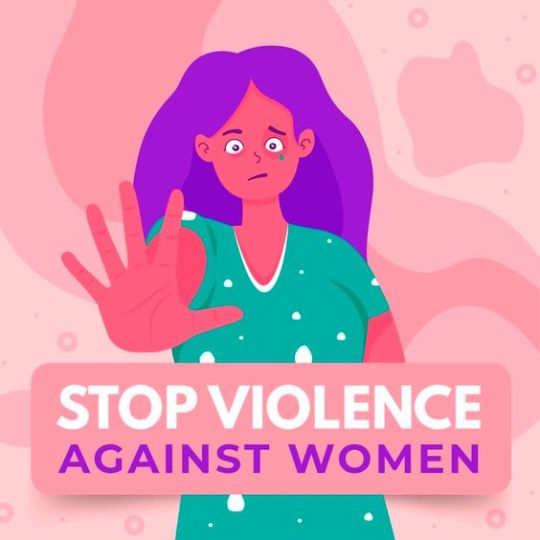
The history of violence against women is a dark chapter that continues to be written in many parts of the world. Yet, with awareness, education, and support, we can work toward a future where women are free from fear and violence. If you or someone you know is experiencing abuse, reach out to the resources available. Remember, you are not alone, and help is just a call or message away.
#EndViolenceAgainstWomen#WomensRights#StopDomesticViolence#JusticeForWomen#BreakTheSilence#SupportSurvivors#WomenEmpowerment#MeToo#SayNoToViolence#EndRapeCulture#TogetherWeRise#StopGenderViolence#EndHumanTrafficking#SurvivorStories#WomenSupportingWomen
1 note
·
View note
Text
Mental Health Hotline Resources
Here is a list of mental health hotlines and resources from major countries. These services provide immediate support and can be the first step toward getting help.
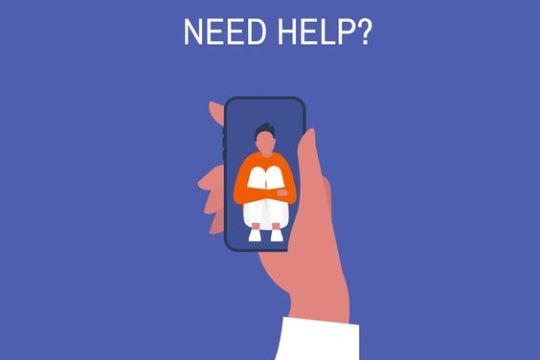
United States
National Suicide Prevention Lifeline: 1-800-273-TALK (8255)
Crisis Text Line: Text HOME to 741741
SAMHSA’s National Helpline: 1-800-662-HELP (4357)
Website: https://suicidepreventionlifeline.org/
Canada
Crisis Services Canada: 1-833-456-4566 or Text 45645
Kids Help Phone: 1-800-668-6868 or Text CONNECT to 686868
Website: https://www.crisisservicescanada.ca/
United Kingdom
Samaritans: 116 123
Mind Infoline: 0300 123 3393
Shout Crisis Text Line: Text SHOUT to 85258
Website: https://www.samaritans.org/
Australia
Lifeline Australia: 13 11 14
Beyond Blue Support Service: 1300 22 4636
Kids Helpline: 1800 55 1800
Website: https://www.lifeline.org.au/
India
Vandrevala Foundation Helpline: 9999 666 555
iCall (TISS): 022-25521111 or 9152987821
AASRA: 91-9820466726
Website: http://www.vandrevalafoundation.com/
New Zealand
Lifeline New Zealand: 0800 543 354
Suicide Crisis Helpline: 0508 828 865 (0508 TAUTOKO)
Youthline: 0800 376 633
Website: https://www.lifeline.org.nz/
South Africa
South African Depression and Anxiety Group (SADAG): 0800 456 789 or 0800 12 13 14
Suicide Crisis Helpline: 0800 567 567
Website: http://www.sadag.org/
Germany
Telefonseelsorge: 0800 111 0 111 or 0800 111 0 222
Website: https://www.telefonseelsorge.de/
Japan
Tokyo Mental Health: 03-5774-0992
Japan Suicide Prevention Association: 03-5286-9090
TELL Lifeline: 03-5774-0992
Website: https://telljp.com/lifeline/
France
SOS Suicide: 01 45 39 40 00
SOS Suicide Ecoute: 01 45 39 40 00
S.O.S. Help: 01 46 21 46 46
Website: https://www.soshelpline.org/
Hotlines by Region
Global Mental Health Resources: https://www.befrienders.org/
International Suicide Prevention Hotlines: https://www.suicidestop.com/call_a_hotline.html
At Infinity State, we believe in the power of connection and understanding. Our hotline is open to anyone who needs a safe space to share their story, whether you’re struggling with your mental health or just need someone to listen. We know that reaching out can be difficult, but we’re here for you, ready to provide support and a compassionate ear.
You can send us a message anytime, and we’ll connect with you as soon as possible. No story is too small or too big—your feelings matter, and we’re here to help you navigate them. Remember, you don’t have to go through this alone. At Infinity State, you are always welcomed, heard, and valued.
#MentalHealthSupport#YouAreNotAlone#InfinityState#WeAreHereForYou#MentalHealthAwareness#TalkAboutIt#EndTheStigma#MentalHealthMatters#SupportEachOther#BreakTheSilence#ItsOkayToNotBeOkay#SeekHelp#MentalHealthResources#HotlinesForHelp#GlobalMentalHealth
1 note
·
View note
Text
How to Communicate About Mental Health Issues and How People Should React
Mental health is an essential part of our overall well-being, yet many people struggle to communicate their mental health issues due to stigma, fear, or uncertainty about how others will respond. Creating a supportive environment where individuals feel safe to express their mental health challenges is crucial for fostering understanding and healing.
How to Communicate About Mental Health Issues
If you or someone you know is dealing with a mental health issue, it’s important to communicate openly and honestly. Here are some steps to help guide that conversation:
Acknowledge Your Feelings:
Start by recognizing and accepting your feelings. It’s okay to feel anxious, sad, or overwhelmed. Understanding that these feelings are valid is the first step toward seeking help.
Choose the Right Time and Place:
Find a quiet and private place where you can have an uninterrupted conversation. Ensure you have enough time to discuss your thoughts and feelings without feeling rushed.
Be Honest and Direct:
Use clear, straightforward language to describe how you’re feeling. You don’t need to have all the answers, but being honest about your struggles is important. Phrases like, "I’ve been feeling really down lately," or "I’ve been struggling with anxiety," can open the door to meaningful conversations.
Share Specific Examples:
If possible, provide specific examples of what you’re experiencing. This can help the person you’re talking to better understand your situation. For instance, "I’ve been having trouble sleeping because of constant worrying," or "I’ve lost interest in things I used to enjoy."
Express Your Needs:
Let the person know how they can support you. This could be as simple as listening without judgment, helping you find professional support, or checking in on you regularly.
Seek Professional Help:
Encourage the involvement of a mental health professional if you feel comfortable doing so. A therapist or counselor can provide guidance and tools to help manage your mental health.
Use Support Resources:
If talking to someone face-to-face feels too difficult, consider using hotlines, chat services, or mental health apps. These resources are available to provide immediate support and can be an excellent first step toward getting help.

How People Should React When Someone Opens Up About Mental Health
When someone shares their mental health struggles, your response can significantly impact their healing journey. Here’s how you can react supportively:
Listen Without Judgment:
Give the person your full attention and listen carefully without interrupting. Avoid making assumptions or jumping to conclusions about their experiences.
Acknowledge Their Feelings:
Validate their emotions by acknowledging how they feel. Statements like "I’m sorry you’re going through this" or "It sounds like you’ve been dealing with a lot" can make a person feel heard and understood.
Offer Support, Not Solutions:
Instead of trying to "fix" the problem, focus on being supportive. Offer to help them find resources, accompany them to appointments, or simply be there to talk.
Avoid Dismissing Their Experience:
Refrain from saying things like "It’s all in your head" or "Just think positive." These comments can minimize their feelings and discourage them from seeking further help.
Encourage Professional Help:
Gently suggest seeking help from a mental health professional if they haven’t already. You can offer to help them find a therapist or go with them to their first appointment.
Check-In Regularly:
Mental health struggles can be ongoing. Regular check-ins show that you care and are there for them in the long run. Even a simple text message asking how they’re doing can mean a lot.
Respect Their Privacy:
If someone confides in you about their mental health, respect their privacy. Don’t share their story with others without their permission.
#MentalHealthAwareness#TalkAboutIt#EndTheStigma#YouAreNotAlone#MentalHealthMatters#SupportEachOther#MentalHealthSupport#BreakTheSilence#ItsOkayToNotBeOkay#SeekHelp#MentalHealthResources#HotlinesForHelp#GlobalMentalHealth
2 notes
·
View notes
Text
The Importance of Mental Health Education in Children
In today’s fast-paced world, the importance of mental health education for children cannot be overstated. As the challenges of modern life continue to grow, equipping children with the tools to understand, manage, and express their emotions is crucial for their overall well-being and future success. Mental health education lays the foundation for a child’s ability to cope with stress, build resilience, and develop healthy relationships.
1. Building Emotional Intelligence
Emotional intelligence is the ability to recognize, understand, and manage one’s emotions and the emotions of others. Teaching children about mental health from a young age helps them develop this critical skill. By learning how to identify their feelings and understand what triggers certain emotions, children become better equipped to handle challenges and conflicts. This emotional literacy can lead to improved self-esteem, better communication, and more positive interactions with peers and adults.
2. Early Intervention and Prevention
Mental health education in childhood can serve as a form of early intervention. By teaching children about mental health, we can help them recognize the signs of mental health issues, both in themselves and others. Early recognition allows for timely support and intervention, which can prevent the escalation of mental health problems later in life. This proactive approach is essential in reducing the stigma associated with mental health and promoting a culture of openness and support.
3. Developing Coping Mechanisms
Life is full of challenges, and children need to be equipped with healthy coping mechanisms to navigate them. Mental health education teaches children how to deal with stress, anxiety, and other emotional difficulties in a constructive way. Techniques such as mindfulness, deep breathing, and positive self-talk can be introduced to children, providing them with a toolkit of strategies to manage their emotions. These skills are invaluable, not just in childhood, but throughout life.

4. Fostering a Supportive Environment
When mental health education is integrated into the school curriculum, it fosters a supportive and inclusive environment where children feel safe to express their feelings. This environment encourages open discussions about emotions, mental health, and well-being, helping to normalize these conversations. When children feel supported, they are more likely to seek help when they need it, reducing the risk of mental health issues going unnoticed or untreated.
5. Reducing Stigma
One of the significant benefits of mental health education is its role in reducing stigma. By teaching children that mental health is just as important as physical health, we can challenge the negative perceptions and misconceptions that often surround mental health issues. Educated children are more likely to be empathetic and supportive of others who may be struggling, creating a more compassionate and understanding society.
6. Improving Academic Performance
Mental health and academic performance are closely linked. Children who have a good understanding of their mental health and who are taught how to manage stress and anxiety are more likely to perform better in school. They can focus better, have more positive interactions with teachers and peers, and are generally more engaged in their learning. Mental health education helps create well-rounded students who are not only academically capable but also emotionally resilient.
The importance of mental health education in children cannot be emphasized enough. By teaching children about mental health, we are not only helping them to navigate the complexities of their emotions but also laying the groundwork for a healthier, more understanding, and resilient society. Mental health education is an investment in our children’s future, equipping them with the skills they need to lead fulfilling and successful lives.
#MentalHealthEducation#ChildrensMentalHealth#EmotionalIntelligence#MentalHealthAwareness#EndTheStigma#KidsMentalHealth#EmotionalWellbeing#MindfulnessForKids#Resilience#MentalHealthMatters#SupportMentalHealth#HealthyKidsHealthyFuture#MentalHealthInSchools#MentalHealthForAll
1 note
·
View note
Text
Understanding Mental Illness: 06
Post-Traumatic Stress Disorder (PTSD)
Post-traumatic stress disorder (PTSD) is a mental health condition triggered by experiencing or witnessing a traumatic event. It can affect people of all ages and often involves reliving the traumatic event through flashbacks or nightmares.

Symptoms:
Intrusive Memories: Recurrent, unwanted distressing memories of the traumatic event, flashbacks, or nightmares.
Avoidance: Avoiding places, activities, or people that remind them of the traumatic event.
Negative Changes in Thinking and Mood: Negative thoughts about oneself or others, feelings of hopelessness, memory problems, and feeling detached from family and friends.
Changes in Physical and Emotional Reactions: Being easily startled, always being on guard for danger, self-destructive behavior, irritability, angry outbursts, and trouble sleeping or concentrating.
Connecting with Someone with PTSD:
Be Patient: Understand that their healing process may take time, and avoid rushing them.
Provide a Safe Space: Ensure they feel safe and secure when they’re with you.
Encourage Open Communication: Let them share their experiences at their own pace.
Avoid Triggers: Be mindful of their triggers and avoid exposing them to these without their consent.
Encourage Professional Help: Support them in seeking therapy or counseling if needed.
#PTSD#PTSDRecovery#PTSDAwareness#PTSDSupport#TraumaRecovery#TraumaSurvivor#BreakTheStigma#MentalHealthMatters#EndTheStigma#YouAreNotAlone#MentalHealthAwareness#HealingFromTrauma#TraumaAwareness#SupportMentalHealth#PTSDCommunity
1 note
·
View note
Text
Understanding Mental Illness: 05
Obsessive-Compulsive Disorder (OCD)
Obsessive-compulsive disorder (OCD) is a common, chronic, and long-lasting disorder characterized by uncontrollable, reoccurring thoughts (obsessions) and/or behaviors (compulsions) that an individual feels the urge to repeat over and over.

Symptoms:
Obsessions: Repeated, persistent, and unwanted thoughts, urges, or images that are intrusive and cause distress or anxiety. Common obsessions include fear of contamination, needing things orderly and symmetrical, aggressive or horrific thoughts about losing control, and unwanted sexual thoughts.
Compulsions: Repetitive behaviors or mental acts that an individual feels driven to perform in response to an obsession. Common compulsions include excessive cleaning or handwashing, ordering and arranging things in a particular, precise way, repeatedly checking things, and compulsive counting.
Connecting with Someone with OCD:
Be Supportive: Understand their need for rituals and routines without judgment.
Encourage Communication: Let them talk about their experiences and feelings.
Avoid Forcing Change: Don’t force them to stop compulsions without professional guidance.
Educate Yourself: Understanding OCD can help you support them effectively.
Offer Reassurance: Provide reassurance, but avoid enabling their compulsions.
#OCD#ObsessiveCompulsiveDisorder#OCDRecovery#OCDAwareness#OCDSupport#BreakTheStigma#MentalHealthMatters#MentalHealthAwareness#EndTheStigma#OCDCommunity#AnxietyAndOCD#OCDStories#LivingWithOCD#YouAreNotAlone#SupportMentalHealth
1 note
·
View note
Text
Understanding mental illness: 04
Schizophrenia
Schizophrenia is a chronic and severe mental disorder that affects how a person thinks, feels, and behaves. It may result in some combination of hallucinations, delusions, and extremely disordered thinking and behavior that impairs daily functioning and can be disabling.

Symptoms:
Delusions: False beliefs that are not based in reality, such as believing that they are being harmed or harassed.
Hallucinations: Seeing or hearing things that don’t exist.
Disorganized Thinking: Incoherent or nonsensical speech, difficulty organizing thoughts.
Negative Symptoms: Reduced ability to function normally, including reduced speaking, lack of motivation, and a flat affect.
Cognitive Symptoms: Poor executive functioning, trouble focusing or paying attention, and problems with working memory.
Connecting with Someone with Schizophrenia:
Show Empathy: Offer understanding and avoid judgment.
Encourage Treatment Adherence: Support them in following their treatment plan, including medication and therapy.
Be Patient and Reassuring: Offer patience and reassurance, especially during episodes of delusions or hallucinations.
Avoid Arguments: Do not argue about their delusions or try to convince them that their perceptions are wrong.
Create a Safe Environment: Ensure they have a safe and stable environment to reduce stress.
#Schizophrenia#SchizophreniaAwareness#SchizophreniaSupport#SchizophreniaRecovery#MentalHealthAwareness#EndTheStigma#BreakTheStigma#MentalHealthMatters#PsychosisAwareness#LivingWithSchizophrenia#UnderstandingSchizophrenia#MentalIllness#YouAreNotAlone#SupportMentalHealth
4 notes
·
View notes
Text
Understanding Mental Illness: 03
Bipolar Disorder
Bipolar disorder, previously known as manic-depressive illness, is a mental disorder that causes unusual shifts in mood, energy, activity levels, and the ability to carry out daily tasks. These mood episodes can range from manic or hypomanic episodes to depressive episodes.
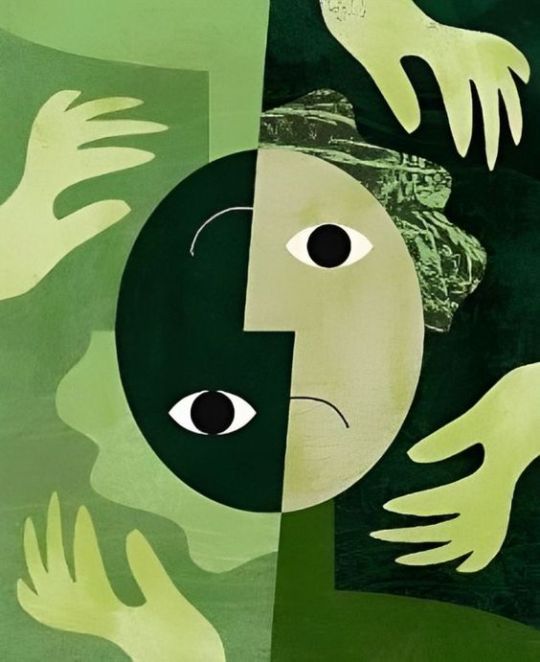
Types of Bipolar Disorder:
Bipolar I Disorder: Characterized by manic episodes that last at least seven days, or manic symptoms that are so severe that immediate hospital care is needed. Depressive episodes also occur and typically last at least two weeks.
Bipolar II Disorder: A pattern of depressive episodes and hypomanic episodes, but not the full-blown manic episodes typical of Bipolar I Disorder.
Cyclothymic Disorder (Cyclothymia): Periods of hypomanic symptoms as well as periods of depressive symptoms lasting for at least two years (one year in children and adolescents), but the symptoms do not meet the diagnostic requirements for a hypomanic or depressive episode.
Symptoms:
Manic/Hypomanic Episodes:
Abnormally upbeat, jumpy, or wired behavior
Increased activity, energy, or agitation
Exaggerated sense of well-being and self-confidence (euphoria)
Decreased need for sleep
Unusual talkativeness
Racing thoughts
Distractibility
Poor decision-making, such as going on buying sprees, taking sexual risks, or making foolish investments
Depressive Episodes:
Depressed mood (feeling sad, empty, hopeless)
Loss of interest or feeling no pleasure in all or most activities
Significant weight loss or gain, or decrease or increase in appetite
Insomnia or sleeping too much
Restlessness or slowed behavior
Fatigue or loss of energy
Feelings of worthlessness or excessive guilt
Decreased ability to think or concentrate, or indecisiveness
Thoughts of death or suicide
Connecting with Someone with Bipolar Disorder:
Be a Stable Support System: Offer consistent support, especially during mood swings.
Educate Yourself: Learn about the disorder to better understand their experiences and how you can help.
Encourage Treatment Adherence: Support their treatment plan, including medications and therapy sessions.
Be Patient: Mood swings can be unpredictable, so patience is key.
Avoid Triggering Conversations: Be mindful of their mood and avoid topics that may exacerbate their condition.
#BipolarDisorder#BipolarAwareness#ManicDepression#BipolarSupport#BipolarRecovery#BipolarJourney#MentalHealth#MentalHealthMatters#MentalHealthAwareness#BreakTheStigma#EndTheStigma#MentalIllnessRecovery#MoodDisorders#LivingWithBipolar#YouAreNotAlone#BipolarStories
1 note
·
View note
Text
Understanding Mental Illness: 02
Depressive Disorders
Depressive disorders are mood disorders characterized by persistent feelings of sadness and a lack of interest or pleasure in previously rewarding or enjoyable activities. Depression affects how a person feels, thinks, and handles daily activities, such as sleeping, eating, or working.

Types of Depressive Disorders:
Major Depressive Disorder (MDD): Characterized by a persistent feeling of sadness or a lack of interest in outside stimuli, affecting daily functioning.
Persistent Depressive Disorder (Dysthymia): A long-term (chronic) form of depression.
Seasonal Affective Disorder (SAD): Depression that occurs at a specific time of year, usually in the winter.
Postpartum Depression: Severe, long-lasting depression in new mothers after childbirth.
Bipolar Disorder (previously known as manic depression): Includes episodes of depression and mania or hypomania.
Symptoms:
Persistent sad, anxious, or "empty" mood
Loss of interest or pleasure in hobbies and activities
Feelings of hopelessness or pessimism
Irritability
Feelings of guilt, worthlessness, or helplessness
Decreased energy or fatigue
Difficulty concentrating, remembering, or making decisions
Insomnia or sleeping too much
Changes in appetite or weight
Thoughts of death or suicide, or suicide attempts
Aches or pains, headaches, cramps, or digestive problems without a clear physical cause
Connecting with Someone with Depression:
Listen Actively: Let them share their feelings and experiences without offering unsolicited advice.
Be Supportive: Encourage them to seek help from mental health professionals if necessary.
Help with Daily Tasks: Offer assistance with small tasks that may seem overwhelming to them.
Encourage Activity: Suggest engaging in activities they used to enjoy, but avoid pressuring them.
Avoid Dismissive Comments: Refrain from saying things like "snap out of it" or "just be positive."
#Depression#DepressionAwareness#MajorDepressiveDisorder#PersistentDepressiveDisorder#Dysthymia#SeasonalAffectiveDisorder#SAD#PostpartumDepression#BipolarDepression#MentalHealthSupport#StopTheStigma#TalkAboutIt#MentalHealthAdvocate#ItGetsBetter#DepressionRecovery#DepressionHelp#SupportEachOther
1 note
·
View note
Text
Understanding Mental Illness: 01
Anxiety Disorders
Anxiety disorders are among the most common mental health conditions and can affect anyone at any age. They are characterized by excessive fear or worry that interferes with daily activities. While occasional anxiety is a normal part of life, anxiety disorders are persistent and can lead to significant distress.
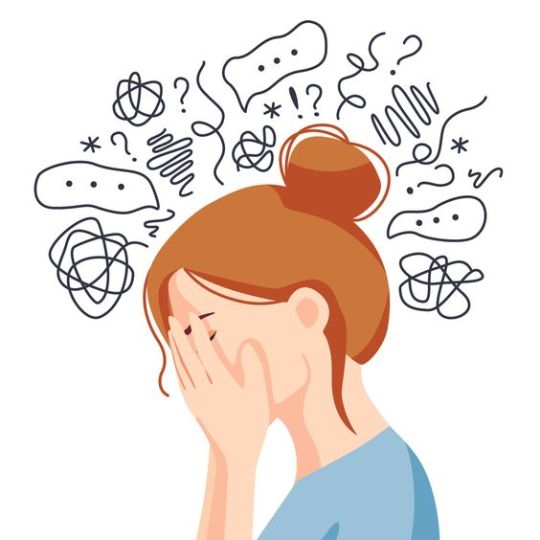
Types of Anxiety Disorders:
Generalized Anxiety Disorder (GAD): Characterized by chronic, exaggerated worry and tension, even when there is little or nothing to provoke it.
Panic Disorder: Involves recurrent, unexpected panic attacks, which are sudden periods of intense fear that may include palpitations, sweating, and feelings of impending doom.
Social Anxiety Disorder: Characterized by overwhelming anxiety and excessive self-consciousness in everyday social situations.
Specific Phobias: Intense fear of a specific object or situation, such as heights, flying, or spiders.
Symptoms:
Persistent worrying or anxiety about a variety of areas that are disproportionate to the event
Restlessness or feeling tense or on edge
Rapid heartbeat or palpitations
Difficulty concentrating or having your mind go blank
Muscle tension
Irritability
Sleep disturbances (difficulty falling or staying asleep, restless sleep)
Avoidance of situations that trigger anxiety
Physical symptoms such as sweating, trembling, dizziness, or gastrointestinal problems
Connecting with Someone with Anxiety:
Be Patient and Understanding: Understand that anxiety can feel overwhelming and irrational and avoid dismissing their feelings.
Encourage Expression: Let them express their worries and fears without judgment.
Offer Support: Help them face anxiety-provoking situations when they’re ready but avoid pushing them too far.
Stay Calm: Your calm presence can be reassuring during their anxious moments.
Educate Yourself: Learning about anxiety can help you understand what they are going through.
#Anxiety#AnxietyDisorder#AnxietyAwareness#GeneralizedAnxietyDisorder#PanicDisorder#SocialAnxiety#SocialAnxietyAwareness#Phobias#MentalHealthAwareness#EndTheStigma#YouAreNotAlone#MentalHealthMatters#AnxietyRelief#AnxietySupport#CalmYourMind#Mindfulness
1 note
·
View note
Text
Success Story: Overcoming Anger Issues with the Help of Infinity State
Meet Jamie: (Pronoun - They/Them)
Jamie had always struggled with anger issues. Growing up, they often found themselves getting frustrated over small things, leading to frequent arguments with friends and family. Jamie knew that their anger was affecting their relationships and overall well-being, but they didn't know where to start when it came to managing these intense emotions.
That’s when Jamie discovered Infinity State, a blog dedicated to mental health and self-improvement. The articles resonated with them, offering practical advice and insights on emotional intelligence, self-care, and mindfulness. Jamie decided to apply what they learned from the blog to overcome their anger issues.
Listen to what they have to say-

Hey everyone, I wanted to share my journey of overcoming anger issues and how Infinity State has played a crucial role in helping me transform my life. For years, I struggled with controlling my anger. It affected my relationships, my job, and my overall mental well-being. I often felt frustrated, misunderstood, and out of control, which led to a cycle of guilt and shame. About six months ago, I stumbled upon the Infinity State blog while searching for resources to manage my anger. The articles on emotional intelligence and self-awareness caught my attention, and I decided to give the techniques a try. The article on Understanding Emotional Intelligence was a game-changer for me. I learned that recognizing and understanding my emotions was the first step toward managing them. I started practicing self-reflection, as the article suggested, and began identifying the triggers that set off my anger. I also incorporated mindfulness meditation into my daily routine, as recommended in the blog. Spending just 10 minutes each morning focusing on my breath helped me become more aware of my emotions. I began to notice when anger was starting to build, and I learned to pause and take a step back before reacting. The self-regulation tips from the blog taught me to replace impulsive reactions with healthier responses. I started using techniques like counting to ten and taking deep breaths when I felt my anger rising. These simple strategies helped me regain control and approach situations with a calmer mindset. Building Empathy and Understanding The blog's emphasis on empathy and understanding others' perspectives was another turning point for me. I realized that my anger often stemmed from misunderstandings and unmet expectations. By actively listening and trying to see things from others' viewpoints, I was able to resolve conflicts more effectively and reduce the frequency of my angry outbursts. One of the most impactful changes I made was incorporating gratitude into my life. Inspired by the Power of Gratitude article, I started keeping a gratitude journal. Each day, I wrote down three things I was thankful for. This simple practice shifted my focus from what was wrong in my life to what was going well. It helped me develop a more positive mindset and increased my overall happiness. With the help of Infinity State, I've made significant progress in managing my anger issues. My relationships with family, friends, and colleagues have improved dramatically. I no longer feel trapped by my emotions, and I've gained a sense of control and peace that I never thought possible. I want to extend my heartfelt gratitude to Infinity State for providing such valuable resources and insights. If you're struggling with anger or any other mental health challenges, I encourage you to explore the blog and take those first steps toward positive change. Remember, you're not alone, and change is possible with the right support and determination. Thank you for being part of my journey.
#SuccessStory#AngerManagement#EmotionalIntelligence#Mindfulness#SelfCare#PersonalGrowth#InfinityState#PositiveChange#MentalHealth
2 notes
·
View notes
Text

Join the Infinity State Community!
🌟 Welcome to Infinity State! 🌟
Are you passionate about mental health and self-improvement? Do you want to connect with like-minded individuals on a journey toward greater well-being and understanding? Then join the Infinity State community!
At Infinity State, we're dedicated to exploring the many facets of mental health, from mindfulness and self-compassion to resilience and personal growth. Our community is a safe and supportive space where you can share your thoughts, experiences, and insights without judgment.
Why Join Infinity State?
Engage with a Supportive Community: Connect with others who understand the challenges and triumphs of mental health.
Access Inspiring Content: Enjoy articles, personal stories, and tips that empower and motivate.
Share Your Voice: Your experiences matter. Share your story or advice and inspire others on their journey.
Grow Together: Let's learn, grow, and heal together as a community committed to mental well-being.
Whether you're looking for support, seeking new perspectives, or simply want to be part of a compassionate community, we welcome you with open arms. Follow Infinity State and become part of our growing community today. Let's make a positive impact on our mental health journey together!
Join us by following Infinity State, and don't forget to like, comment, and share your thoughts!
Together, we can create a space where everyone feels valued and understood. Welcome to Infinity State! 🌈
#InfinityState#JoinUs#MentalHealthCommunity#Support#Mindfulness#SelfCompassion#MentalWellness#CommunitySupport#HealingTogether#MentalHealthAwareness
3 notes
·
View notes
Text
The Power of Gratitude: How Thankfulness Can Transform Your Life
In the hustle and bustle of everyday life, it's easy to overlook the small things that bring us joy. However, cultivating a sense of gratitude can have profound effects on our mental health and overall happiness. In this article, we'll explore the power of gratitude and how practicing thankfulness can transform your life for the better.
What is Gratitude?
Gratitude is the appreciation for the good things in your life, both big and small. It's about recognizing the positive aspects and expressing thankfulness for them. Gratitude can be directed towards people, experiences, or even simple moments of joy.

Benefits of Practicing Gratitude:
Improved Mental Health: Gratitude has been linked to reduced symptoms of depression and anxiety, promoting a more positive outlook on life.
Enhanced Relationships: Expressing gratitude strengthens bonds and fosters deeper connections with others.
Increased Resilience: Focusing on the positive aspects of life helps build resilience in the face of challenges and setbacks.
Better Sleep: Practicing gratitude before bed can lead to improved sleep quality and a more restful night.
Boosted Self-Esteem: Recognizing and appreciating your own accomplishments can enhance self-worth and confidence.
How to Cultivate Gratitude:
Gratitude Journaling: Keep a journal where you write down things you're grateful for each day. This practice encourages you to focus on positive experiences.
Gratitude Meditation: Spend a few minutes each day reflecting on the things you appreciate in your life. This can be a calming and uplifting practice.
Express Appreciation: Take the time to thank people who have positively impacted your life. A heartfelt "thank you" can strengthen relationships and spread positivity.
Focus on the Present: Practice mindfulness to savor the present moment and appreciate the beauty in everyday life.
Reframe Challenges: Try to find silver linings in difficult situations, recognizing the lessons and growth opportunities they provide.
Conclusion:
Gratitude is a powerful tool for enhancing mental well-being and creating a more fulfilling life. By cultivating an attitude of thankfulness, you can improve your mood, strengthen relationships, and increase resilience. Start incorporating gratitude practices into your daily routine and experience the transformative effects for yourself.
#Gratitude#Thankfulness#PositiveThinking#MentalHealth#WellBeing#Mindfulness#SelfCare#Happiness#Resilience
3 notes
·
View notes
Text
Understanding Emotional Intelligence: The Key to Better Relationships

In today's interconnected world, emotional intelligence (EQ) is more important than ever. While traditional intelligence (IQ) is valuable, EQ plays a crucial role in building healthy relationships, both personally and professionally. In this article, we'll explore what emotional intelligence is, why it matters, and how you can develop this essential skill to improve your interactions and overall mental well-being.
What is Emotional Intelligence?
Emotional intelligence is the ability to recognize, understand, and manage our own emotions and the emotions of others. It consists of five key components:
Self-Awareness: Understanding your emotions, strengths, weaknesses, and values.
Self-Regulation: The ability to control impulsive behaviors and manage emotions in a healthy way.
Motivation: Harnessing emotions to pursue goals and remain committed in the face of challenges.
Empathy: Understanding and sharing the feelings of others, fostering deeper connections.
Social Skills: Effectively navigating social situations, building relationships, and resolving conflicts.
Why Emotional Intelligence Matters:
Improved Relationships: High EQ leads to better communication, understanding, and collaboration, enhancing personal and professional relationships.
Better Decision-Making: Being aware of your emotions helps you make more rational and balanced decisions.
Stress Management: EQ helps you recognize and manage stress, promoting resilience and mental well-being.
Conflict Resolution: Empathy and social skills enable you to navigate conflicts and find mutually beneficial solutions.
How to Develop Emotional Intelligence:
Practice Self-Reflection: Regularly reflect on your emotions and reactions to better understand yourself.
Mindfulness Meditation: Practice mindfulness to increase self-awareness and emotional regulation.
Active Listening: Pay attention to others' emotions and perspectives, enhancing empathy and connection.
Seek Feedback: Ask for feedback from trusted friends or colleagues to identify areas for improvement.
Develop Social Skills: Engage in activities that require teamwork and communication to build social skills.
Conclusion:
Emotional intelligence is a vital skill that can transform your relationships and mental well-being. By developing self-awareness, empathy, and social skills, you can create deeper connections and navigate life's challenges with greater ease. Start practicing EQ today, and watch your personal and professional relationships flourish.
#EmotionalIntelligence#EQ#SelfAwareness#Empathy#Relationships#CommunicationSkills#MentalWellBeing#PersonalGrowth
1 note
·
View note